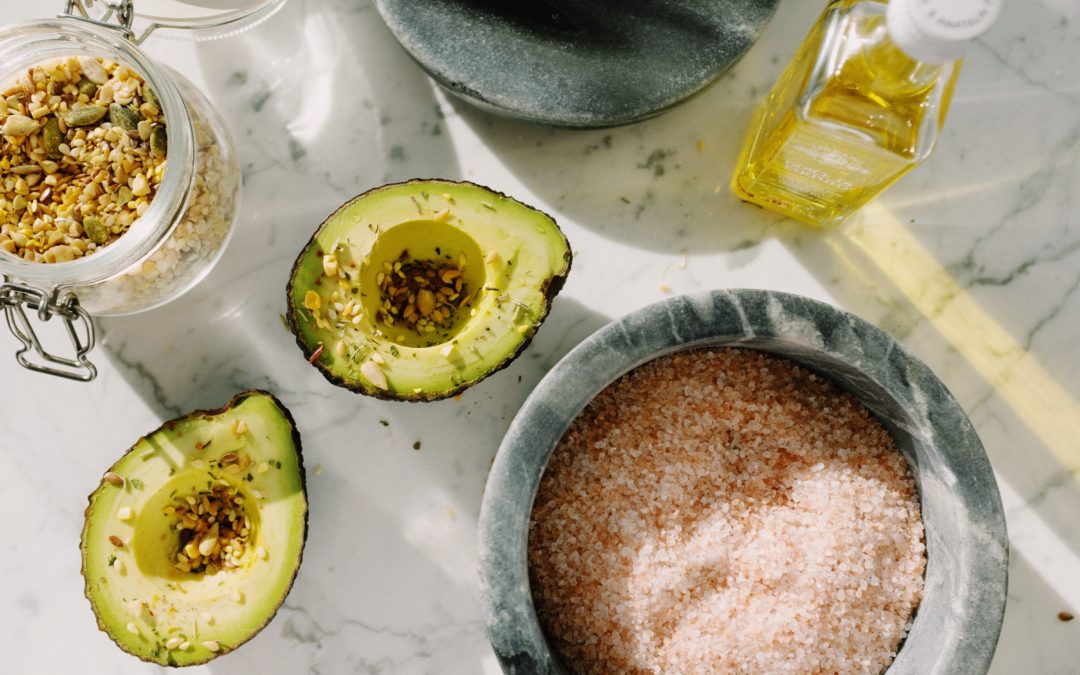There are a few different tests that your doctor looks at when determining your heart health. Some tests are physical, such as stress tests or electrocardiograms (ECGs), while measures require you to complete blood work.
Some of the parameters measured using blood work include,
-
- LDL cholesterol
- HDL cholesterol
- Triglycerides
- Total cholesterol
Low levels of HDL cholesterol or high levels of LDL cholesterol or triglycerides can increase your risk of heart disease, and other complications.
Having said that, there are a few changes you can make your diet more heart-healthy. Now, keep in mind, that you do not need to make all of these changes in one go. Making one or two heart-healthy changes at a time can feel less overwhelming, and lead to more sustainable habits in the long term.
Choose Heart-Healthy Oils
Although oils are part of any healthy diet, there are some options which are more heart-healthy than others. As their name suggests, unsaturated oils are a source of unsaturated fat and can help reduce LDL (bad) cholesterol levels Unsaturated oils also contain omega 3 fatty acids which have can lower triglyceride levels.
When it comes to heart health, unsaturated oils are the preferred option. These include,
-
- Olive oil
- Canola oil
- Vegetable oils
- Avocado oil

In addition to containing omega-3 fatty acids, vegetable oils contain plant sterols which can help lower your bad cholesterol.
On the other hand, some oils to avoid are,
-
- Coconut oil
- Palm oil
- Palm kernel oil
Recently, canola and other vegetable oils have been portrayed as less healthy than “natural” options such as coconut oil. However, these oils contain unsaturated fats, while seemingly healthy oils such as coconut oil are high in saturated fats.
Not sure if your oil is heart-healthy? A good rule of thumb for choosing healthy oils is, to choose oils that are liquid at room temperature.
You can learn more about the different types of fats from Everything Your Need to Know About Fats.
Low-Sodium Alternatives
Sodium is one of those nutrients that almost everyone meets or exceeds the recommendations. This is because there are many sources of sodium in our diet. Not only is sodium found in table salt, but is also found in many packaged, canned or frozen foods. Although sodium is an essential nutrient that your body needs to function properly, consuming too much can have a negative impact on your health. Eating too much sodium leads to a rise in the amount of blood in your arteries and your blood pressure which increases your risk of heart disease and strokes.
Tips for Choosing Low-Sodium Options
When choosing packaged foods, look for the “low-sodium”, “no salt added” or “sodium-free” options. You can also reduce the amount of salt in your diet by limiting the amount you use during cooking. Instead of salt, try including fresh spices, herbs and seasonings to keep your meals tasty!
Reduce Your Alcohol Intake
Your alcohol intake is another factor that can contribute to a rise in your triglyceride levels. If you have high triglyceride levels, then your doctor may suggest reducing your alcohol intake.
Canada’s guidelines recommended women consume 2 or less drinks per day, and men consume 3 or less drinks per day.
Limit Added Sugar
Added sugar can be found in more foods than you might think, and can impact your triglyceride levels. Limiting the amount of added sugars in your diet can help lower your triglyceride levels. Although Health Canada does not provide any recommendations at this time, Diabetes Canada recommends limiting your intake of added sugars to less than 10% of your daily calorie intake. You can use the nutrition facts label to determine the amount of sugar in food products.
Watch for Milk Fat
It might surprise you to learn that cheese, contains more fat than milk. However, cheese has a higher percentage of milk fat than milk itself. Most cheese packages will note the amount of milk fat in one of the package corners. When looking for a heart-healthy cheese, look for options that contain less than 20% milk fat (MF).
Make Your Diet More Heart-Healthy
Ready to boost your health with personalized nutrition recommendations? Book a FREE discovery call with a Registered Dietitian to get started!
References
Almiron-Roig, E., Palla, L., Guest, K., Ricchiuti, C., Vint, N., Jebb, S. A., & Drewnowski, A. (2013). Factors that determine energy compensation: A Systematic review of preload studies. Nutrition Reviews, 71(7), 458–473. https://doi.org/10.1111/NURE.12048
Fats and oils. (n.d.). Heart and Stroke Foundation. Retrieved July 5, 2022, from https://www.heartandstroke.ca/healthy-living/healthy-eating/fats-and-oils
Reduce salt. (n.d.). Heart and Stroke Foundation. Retrieved July 5, 2022, from https://www.heartandstroke.ca/healthy-living/healthy-eating/reduce-salt
With a Bachelor of Science in Nutrition and Food Science, Rachel has over 15 years’ experience helping people address their health through nutrition.


